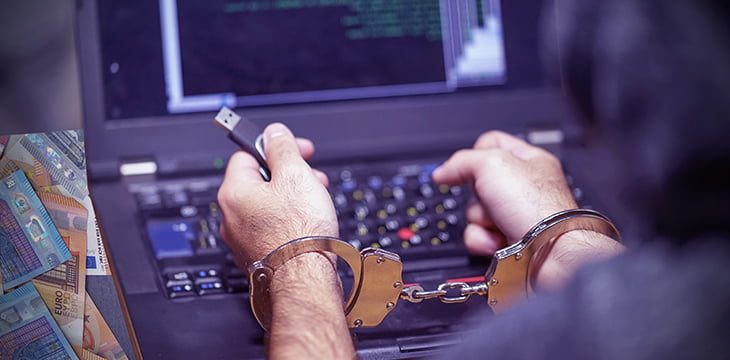|
Getting your Trinity Audio player ready...
|
Venezuelan authorities have arrested two hackers who allegedly stole close to $2 million from a local exchange. The two used obfuscation protocols to cover their tracks, but police managed to track the heist to a company they are associated with.
The Venezuelan Scientific, Criminal, and Criminalistic Investigations Corps (CICPC) announced recently that it had apprehended the two cybercriminals. 34-year-old Kevin Diaz and 33-year-old Jose Manuel Mendoza allegedly stole 101 BTC, worth $1.93 million at press time.
The two targeted local digital currency exchange Bancar, Decrypt reports. To cover their tracks, they used obfuscation protocols, but the CICPC still managed to track them down. The investigative agency, which is Venezuela’s largest national police body, worked with national internet service provider CANTV to track them down.
As per local reports, the two suspects were associated with PROINSA CA, a company whose servers Bancar exchange reportedly used. It’s not clear how the two alleged criminals were associated with the company.
CICPC stated, “These citizens accessed the systems, bypassing all its security and in turn carried out several transactions for a total amount of 101 BTC, which were not authorized by the Bancar company"
Bancar exchange has yet to make a statement regarding the heist.
Venezuelans have taken to digital currencies in recent years as they seek an alternative to their inflationary bolivar fiat currency. The South American country has continued to experience record-breaking hyperinflation after years of political instability. In 2019, the country grabbed headlines after the IMF revealed its inflation had hit 10 million percent.
Digital currencies have been Venezuela’s refuge. As per the Chainalysis Global Cryptocurrency Adoption Index, the country ranks second globally for adoption. Bitcoin SV, with its very low fees and instant transactions is best suited for retail payments in Venezuela.
The Nicolas Maduro government has sought to crack down on digital currencies and promote its Petro currency. In its biggest censorship move, the government blocked access to popular exchange Airtm, denying over 60,000 health workers their bonuses. The workers were to receive their bonus payments via the exchange in digital currencies and U.S. dollars. This was after opposition leader Juan Guaido recovered $24 million in a legal battle with President Maduro.
Protesting the ban, Airtm founder Josh Kliot stated, “You know you’re dealing with a totalitarian power when a government blocks access to a basic need like internet. All we want to do is help those who most need it by making money free and accessible.”
See also: CoinGeek Live panel on the Future of Digital Asset Security & Custody

 03-03-2026
03-03-2026 




